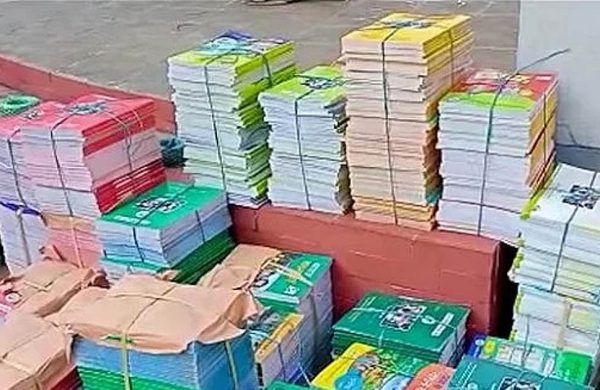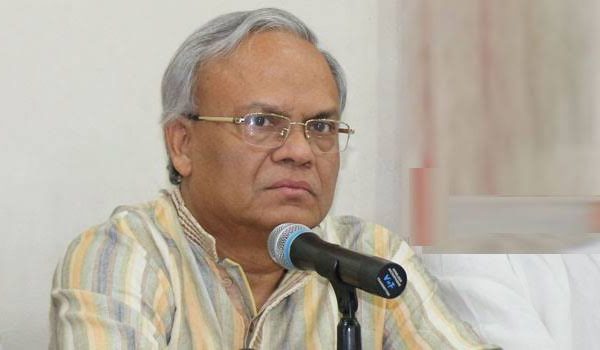Restrictions on jewellery imports raise fears of further gold price hikes
- Update Time : Tuesday, June 10, 2025

TDS Desk:
Gold prices are rising steadily due to ongoing global instability, putting increasing pressure on middle- and lower-income buyers, especially those looking to purchase jewellery for family events such as weddings.
The jewellery business itself is also facing deeper challenges. Despite the era of free trade, consumers in Bangladesh are forced to buy gold jewellery at significantly higher prices than in many international markets.
As of now, the price of 22-carat gold in the domestic market stands at Tk 172,336 per bhori. At the end of 2024, the price was Tk 140,586 , marking a Tk 31,750 increase in just six months.
So, how much higher are gold prices in Bangladesh compared to Dubai and India? According to the Dubai Jewellery Group’s website, the price of a 22-carat gold bar was 4,318 dirhams on Monday, equivalent to Tk 143,677 in Bangladeshi currency.
Meanwhile, the website of the Bullion and Jewellers Association of India reported that the price per bar in Indian jewellery shops was INR 108,965 yesterday, equivalent to Tk 155,432.
This means a 22-carat gold bar is Tk 28,659 cheaper in Dubai than in Bangladesh, and Tk 16,904 cheaper in India.
When asked about the significant price gap between Bangladesh and international markets, leaders of the Jewellers Association offered only brief explanations. They pointed out that while many other countries have a ‘commodity exchange’ system for trading gold, no such mechanism exists in Bangladesh.
Moreover, commercial import of gold is virtually non-existent. A large portion of the country’s demand is met through gold brought in under baggage rules — with customs duties paid. Some of the demand is also met through recycled old jewellery.
However, there are widespread allegations that a substantial amount of gold is entering the country illegally.
The Ministry of Commerce introduced a gold policy in 2018 to bring transparency to the country’s gold business. The following year, Bangladesh Bank issued import licences to 18 institutions—including one bank—for commercial gold import. Later, one more institution received a licence.
Initially, a few consignments were imported by some of these institutions. However, over time, imports came to a halt. Traders reportedly lost interest in importing gold due to several factors: the ongoing dollar crisis, delays in obtaining government permission, and high VAT rates.
Against this backdrop, the government halved the allowance for bringing gold under baggage rules in the 2023–24 fiscal year, from 234 grams to 117 grams. The import duty was also doubled, rising from Tk 2,000 to Tk 4,000 per bhori.
In the proposed budget for the upcoming fiscal year, these restrictions have been tightened further. Previously, a returning passenger could bring in one gold bar weighing 117 grams per trip under baggage rules. That provision has now been revoked. Passengers will now be allowed to bring in a gold bar only once a year upon payment of duty.
In addition, the duty on gold bars has been raised from Tk 4,000 to Tk 5,000 per bhori (11.664 grams). That means bringing in a single gold bar will now cost Tk 50,000 in duty.
Restrictions have also been imposed on gold jewellery. Previously, a passenger could bring up to 100 grams of gold jewellery duty-free each time they returned from abroad. Under the new rules, only 100 grams can be brought in duty-free per year, regardless of the number of trips. This provision has already come into effect.
A senior leader of the Jewellers’ Association, speaking on condition of anonymity, said that since there is no legal commercial import of gold and no gold refining factory in Bangladesh, tightening baggage rules was unwise. “This will lead to a rise in illegal imports and cause further instability in gold prices,” the leader warned.
Ahead of the national budget for the next fiscal year, the Jewellers’ Association made several proposals. These included reducing VAT on gold and silver jewellery sales from 5 per cent to 2 per cent, exempting VAT when purchasing gold from licensed dealers, setting up a one-stop service centre at airports for gold importers, and offering a 10-year tax holiday for establishing gold refining factories.
In pre-budget discussions with the National Board of Revenue (NBR), the association also proposed tightening baggage rules, while simultaneously easing procedures for commercial import. Ultimately, the NBR adopted only the baggage restriction proposal.
Commenting on the issue, Anowar Hossain, an executive member of the Jewellers’ Association, “Instead of simplifying gold imports, stricter baggage rules will worsen the crisis. Where will the gold come from? There is no import, and no refining facility. Under current conditions, illegal gold imports—i.e., smuggling—are likely to increase.”


















